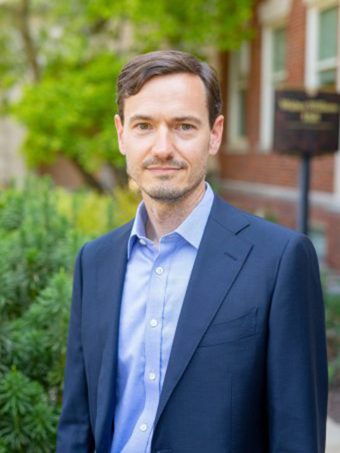
January 16, 2025
Contact: Sara Diedrich, diedrichs@missouri.edu
One lasting impact of the COVID-19 pandemic has been the shift toward flexible work arrangements. Today, more than half of U.S. employees whose jobs can be performed remotely are blending remote work with time in the office.
However, for some employees, the more they work outside the office, the less engaged, valued and supported they feel.
A new study from researchers from the Novak Leadership Institute at the University of Missouri found that although more remote work is associated with slight reductions in employee engagement and well-being, effective and consistent communication from managers can help reverse these negative effects.
“Flexible work arrangements may provide benefits to employees, such as cutting commute times, increasing ability to manage work-life balance and reducing stress, but simply offering flexible work isn’t enough,” said Justin F. Willett, program director at the Novak Leadership Institute and lead author of the study. “Managers play a crucial role in making flexible work successful, and organizations should train managers on how to effectively communicate with their remote and hybrid workers.”

Willett said effective manager communication includes:
- Understanding and supporting employees’ needs for flexibility in where and when they work.
- Setting clear expectations about performance and communication.
- Providing regular updates about policies that might affect flexible work arrangements.
- Seeking and sharing feedback.
- Ensuring smooth implementation of flexible work arrangements.
The research team – which included experts from the Novak Leadership Institute, the Mizzou Department of Communication and Kansas State University – surveyed 1,258 full-time U.S. workers with flexible work arrangements. The participants, who were split almost evenly between men and women, completed an online survey examining their managers' communication behaviors and how those interactions influenced their engagement on the job and overall well-being at work.
The findings revealed a strong correlation between employee engagement and well-being and the quality of leadership communication. Employees who were the happiest and most engaged reported having managers who demonstrated high-quality communication practices. Managers who actively engaged with employees — by sharing and seeking feedback, involving their teams in decision-making and being perceived as open and supportive — helped mitigate the negative effects of feeling disconnected or unsupported, which can result from working in different places or at different times than supervisors or coworkers.
“While flexible work arrangements may provide benefits to employees,” Willett said, “those benefits may not be enough to generate positive employee outcomes if supervisors fail to use communicative behaviors to intentionally address employee challenges with flexible work.”
Previous studies have shown managers spend up to 90% of their time communicating. Thus, leadership communication plays a critical role in influencing the culture of the workplace.
The current study, “Flourishing with Flexibility: Leader Communicative Support of Flexible Work Arrangements Enhances Employee Engagement and Well-Being,” was published in the International Journal of Business Communication. Co-authors are Danielle LaGree, an associate professor of advertising and public relations at Kansas State University who earned her doctorate at the Missouri School of Journalism; J. Brian Houston, professor in the Mizzou Department of Communication; Benjamin R. Warner, professor in the Department of Communication and director of the Political Communication Institute; and Margaret Duffy, professor of strategic communication at the Missouri School of Journalism and executive director of the Novak Leadership Institute.
The Novak Leadership Institute was established in 2017 with an endowment of $21.6 million from MU alumnus David Novak and family. A strategic communication graduate of the Missouri School of Journalism, Novak is the retired CEO of Yum! Brands, the world’s largest restaurant brand (Pizza Hut, Taco Bell and KFC).



